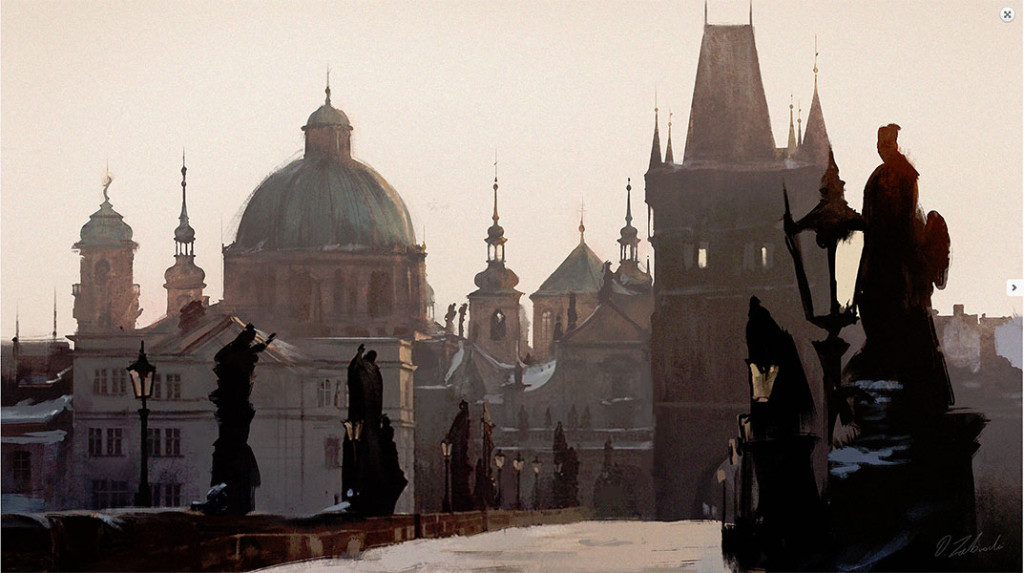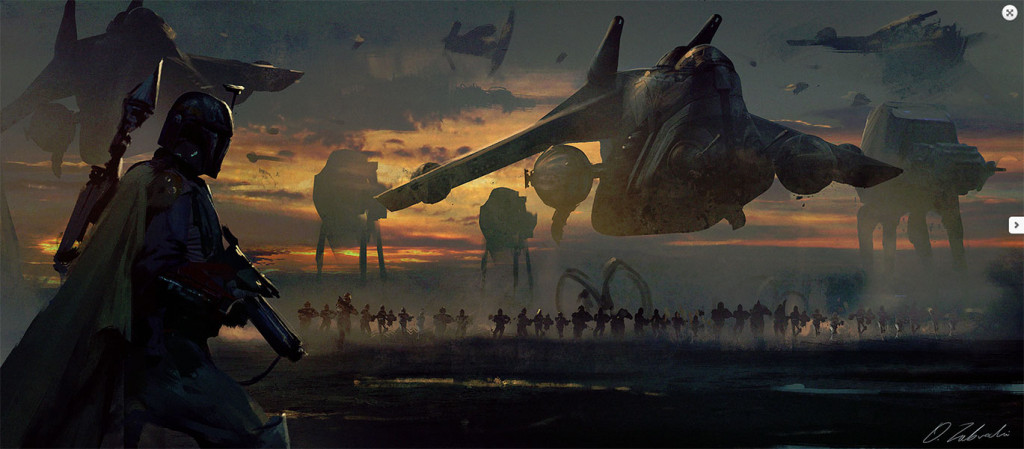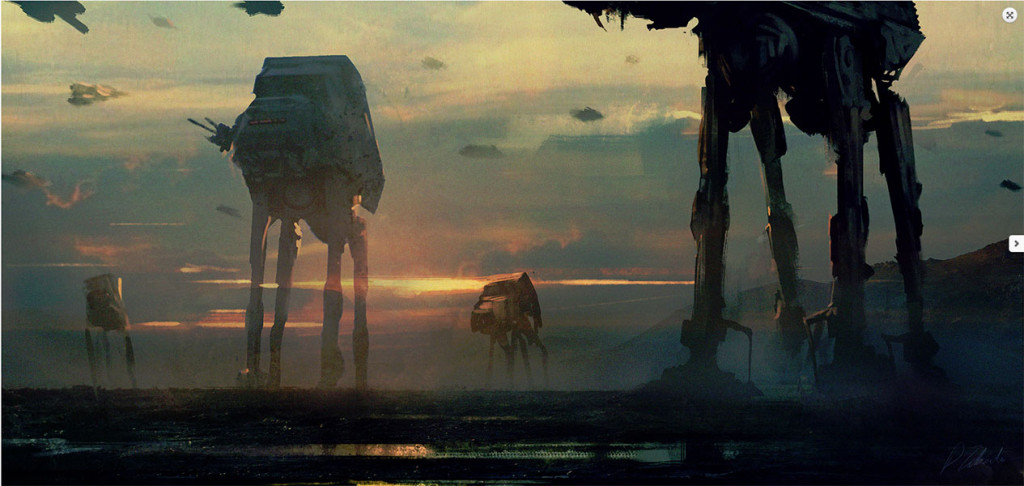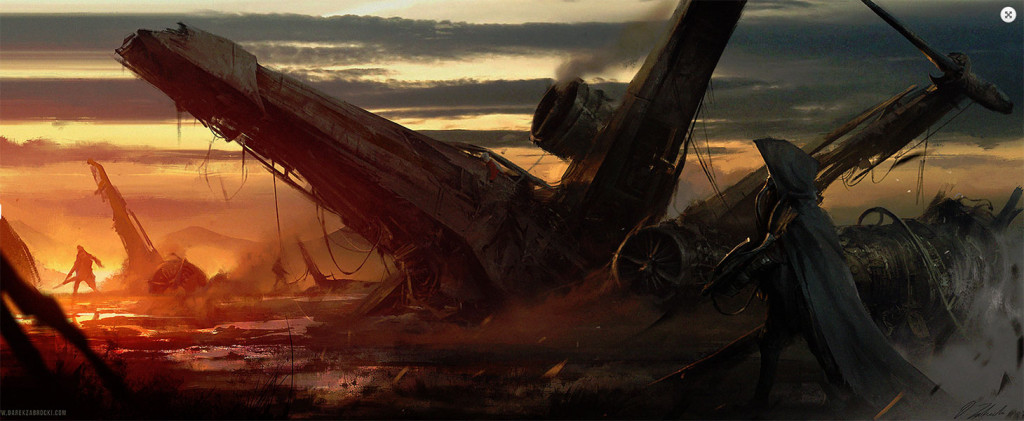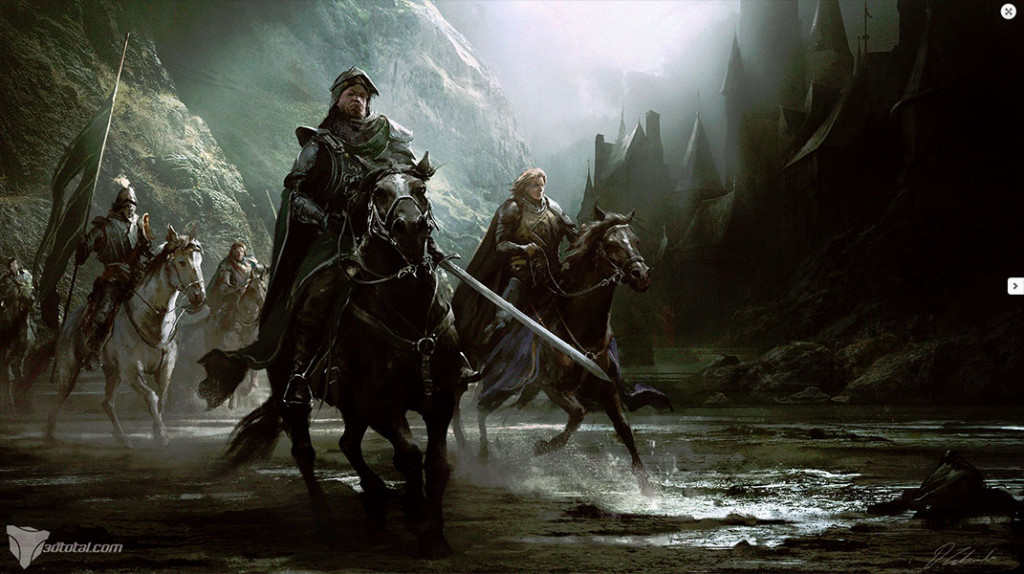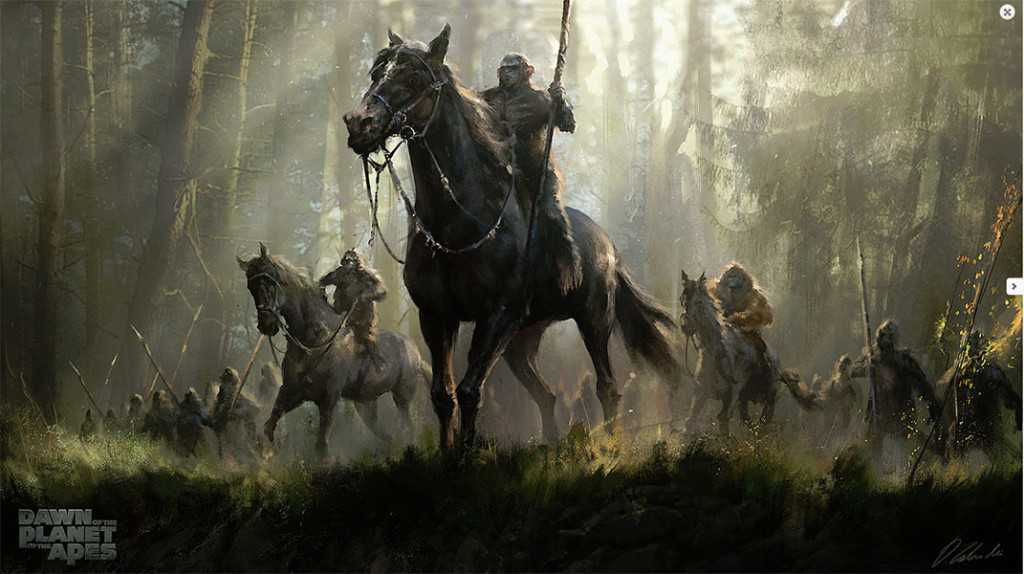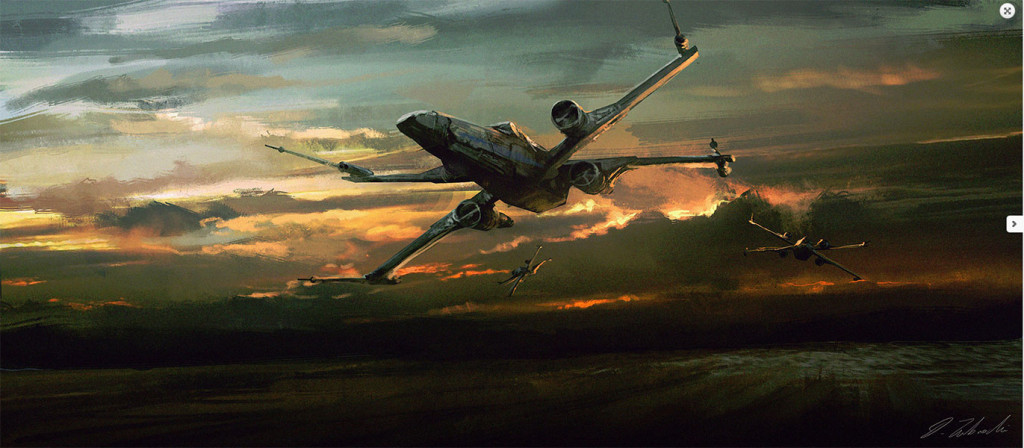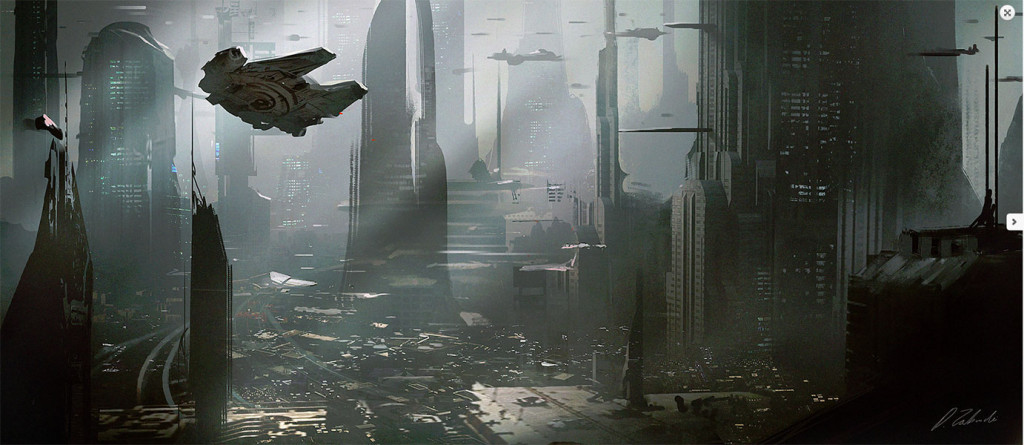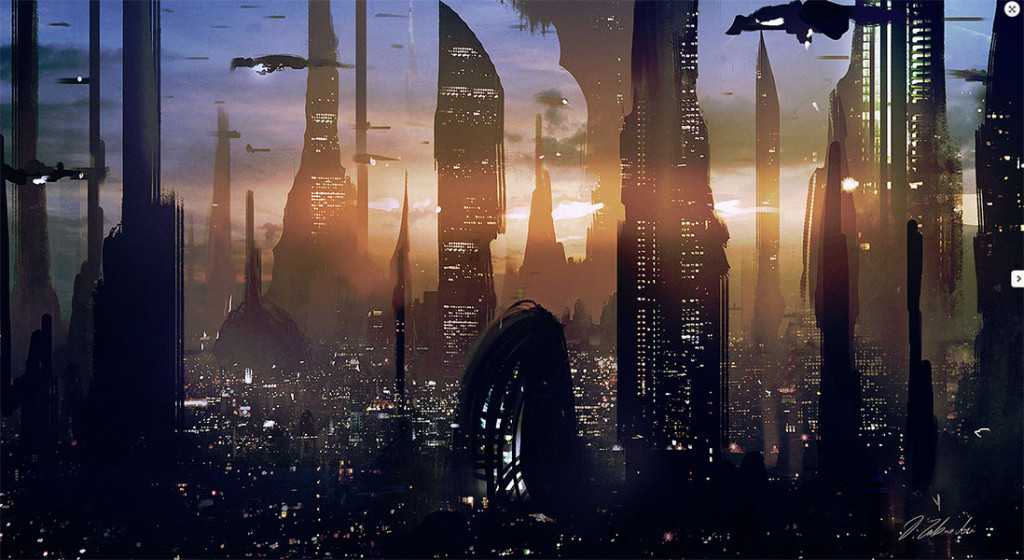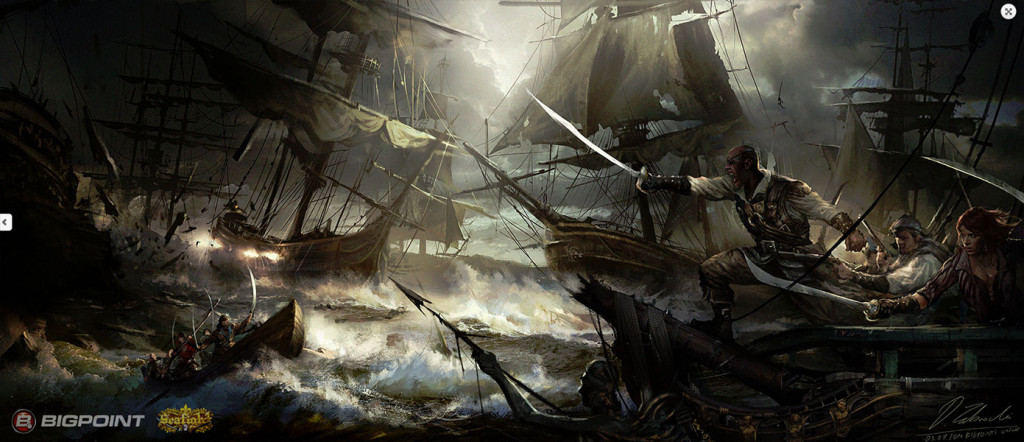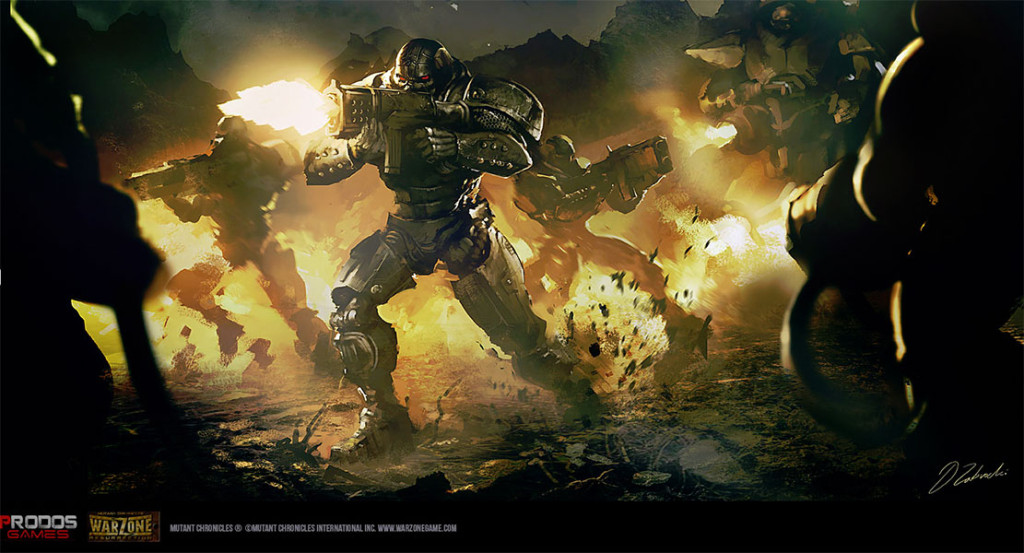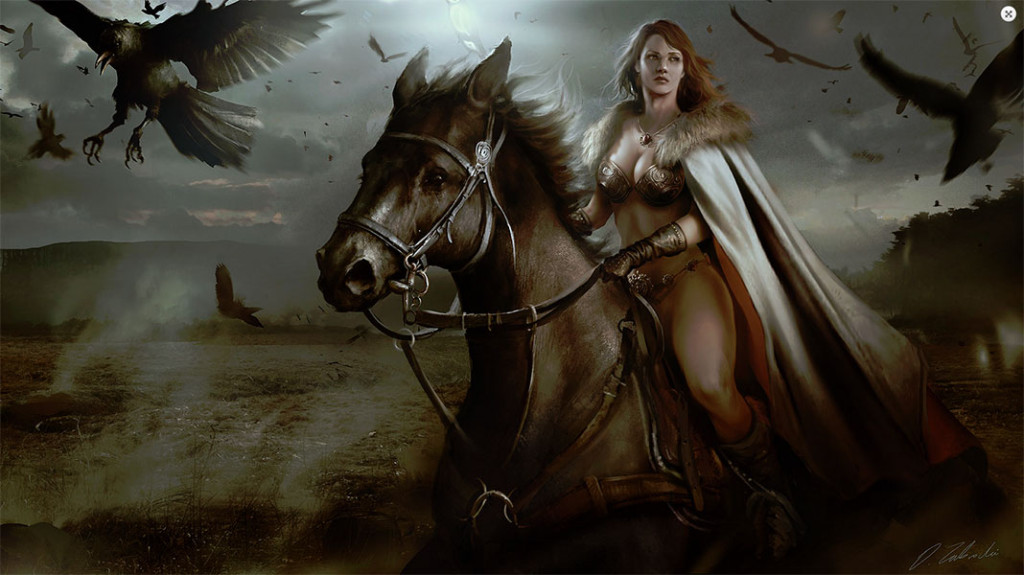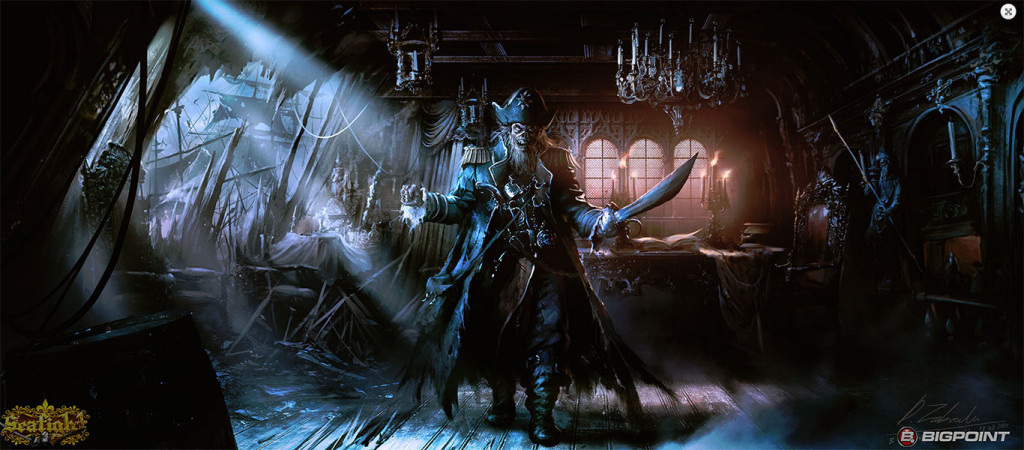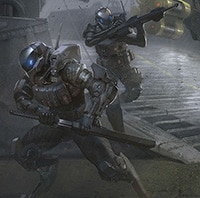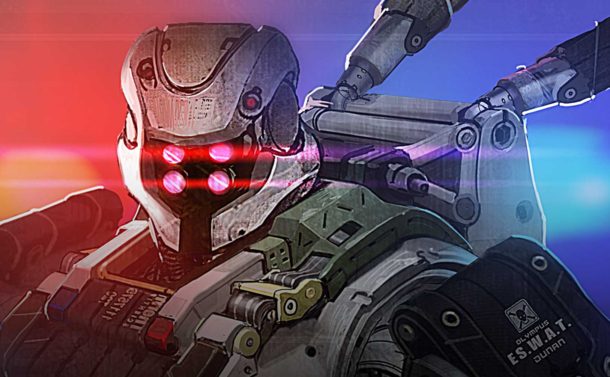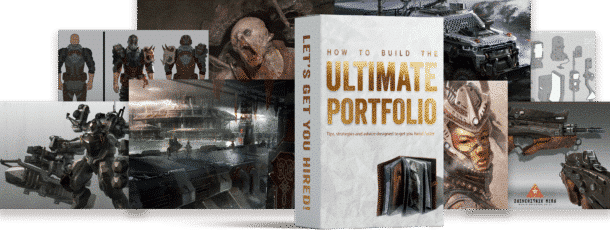
by Eliott Lilly | Aug 12, 2015 | Words of Wisdom
DAREK ZABROCKI IS A PROFESSIONAL CONCEPT ARTIST AND ILLUSTRATOR WORKING IN THE VIDEO GAMES INDUSTRY.
Portfolio: www.darekzabrocki.com
Facebook: http://www.facebook.com/darek.zabrocki91
Instagram: http://instagram.com/darekzabrocki
Darek Zabrocki’s current portfolio examples:
WHAT’S THE MOST IMPORTANT PIECE(S) OF ADVICE YOU CAN OFFER STUDENTS THAT YOU WISH THEY HAD TOLD YOU IN ART SCHOOL?
Work hard, Play hard. If you feel in your guts that art is what you love doing the most, never give up and never let anyone put you down. There are always obstacles and problems on the career path but listen to your heart and do what you love.
ASSUMING THAT THERE ARE NO SPACE-TIME PARADOX’S INVOLVED… IF YOU COULD GO BACK IN TIME 10 YEARS (KNOWING WHAT YOU KNOW NOW), WHAT WOULD YOU TELL YOUR YOUNGER SELF TO DO DIFFERENTLY?
Haha good one! I would probably say: Darek if you make the effort to become a professional artist, then be prepared to develop hardworking habits, sleep less, but don’t forget to take breaks.
WHAT DOES “SUCCESS” MEAN TO YOU AND, WHAT ARE AT LEAST THREE THINGS YOU NEED TO DO IN ORDER TO ACHIEVE IT?
Success is combination of fan’s appreciation of what you’re doing along with ability to make living out of it I guess. I am not crazy about success because I always strive to do my best and be better, it’s never enough success for me and I think that’s what keeps me going. To achieve it you need to be Stubborn, Stubborn and Stubborn once again. Nothing and no one should be able to stop you at doing what you love.
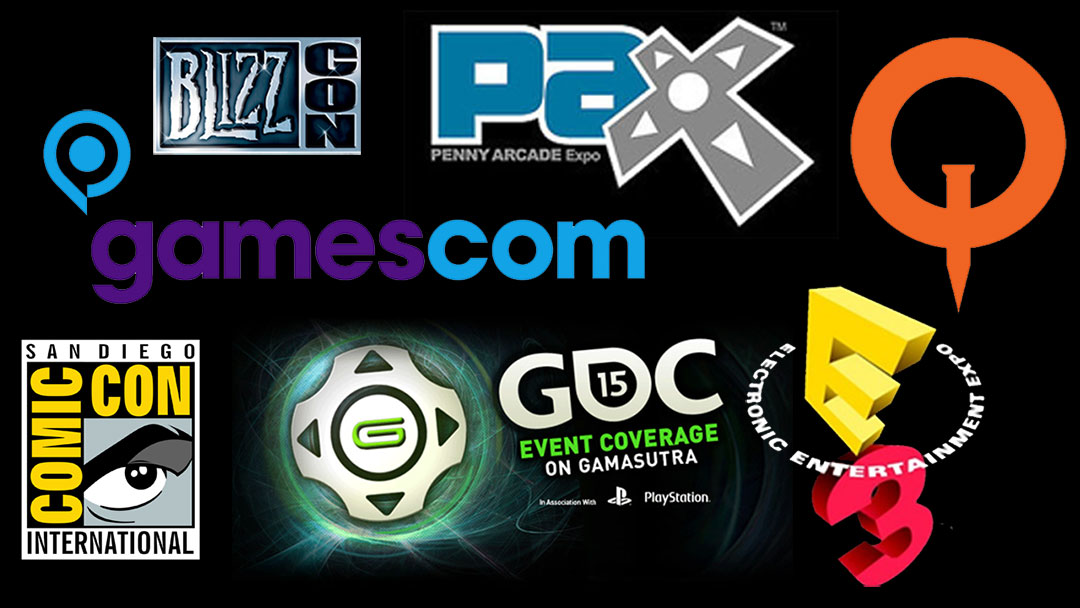
by Eliott Lilly | Aug 10, 2015 | Questions
Question submitted by Josh N.
Hi. I read your article on Artstation “10 things to do before you apply for a concept art job” and I was glad to learn I’ve been doing some of the right things while learning others. I would like to ask though, in regard to expos, do you have any suggestions for which to attend besides the obviously (E3), I have one major obstacle between me and a career in game art, living in Warsaw, IN.
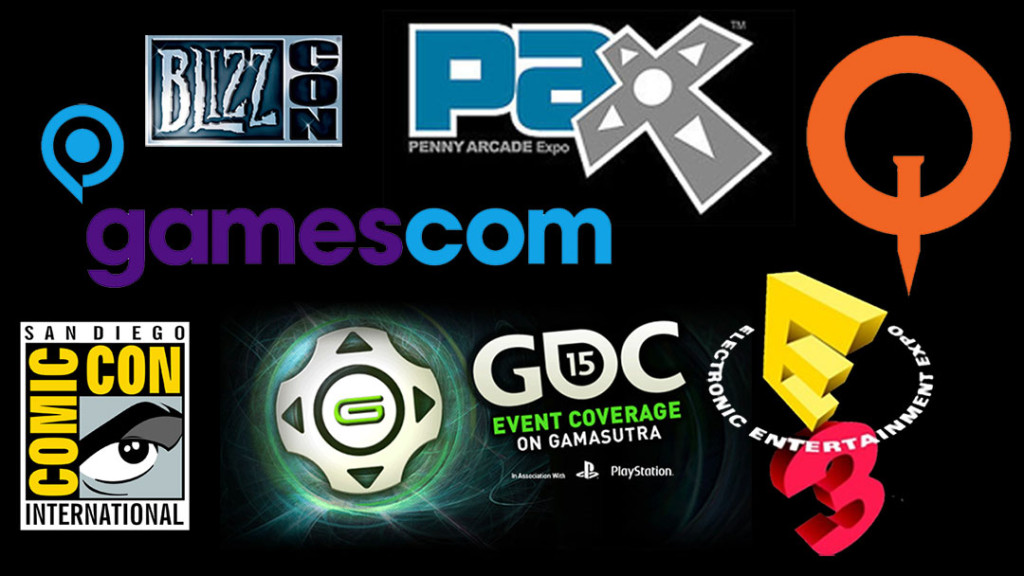
Hi josh,
I’m not too familiar with the gaming events taking place in Warsaw, IN. You will have to do some research there to see if/ when there will be another local event. A quick google search on my part turned up this list of gaming conventions.
As far as other gaming conventions go, you’re right: any of the big ones will do. I personally had a lot of success at GDC (Game Developers Conference). Vendors were easily approachable and had a good number of staff on-hand to look at portfolios. If you can spring for it, that’s where I would start.
-Eliott

by Eliott Lilly | Aug 3, 2015 | Interviews
DAREK ZABROCKI IS A PROFESSIONAL CONCEPT ARTIST AND ILLUSTRATOR WITH OVER A DECADE OF EXPERIENCE WORKING IN THE VIDEO GAMES INDUSTRY.
Portfolio: www.darekzabrocki.com
Facebook: http://www.facebook.com/darek.zabrocki91
Instagram: http://instagram.com/darekzabrocki
Darek Zabrocki’s current portfolio examples:
If you haven’t already, be sure to check out Part 1 and Part 2 of this interview, where we asked him specific questions about what it’s like to be a concept artist in the entertainment industry, dispel a few common misconceptions that aspiring artists tend to have about the field, and discuss his educational background. Here, in part two of this interview, we ask Darek Zabrocki specific questions about building his portfolio, marketing himself in the industry and more. Here’s what Darek Zabrocki had to say:
HOW DID YOU HUNT DOWN YOUR FIRST JOBS IN THE INDUSTRY?
My first big gig working on a AAA title was doing some concepts for Sid Meier’s Starship. I had been recommended by my friend Michal Kus who was also working on it. It happened around the time when Art Station appeared online and was growing as the biggest art community website – I had a lot of time to produce my personal portfolio and I was promoting myself hard back then. Later Sony Guerrilla Games found me on Linkedin, and it would be even later before I would branch out to work with a whole bunch of various projects and clients.
HOW DID YOU MARKET YOURSELF FIRST STARTING OUT? WHAT DIFFICULTIES DID YOU HAVE TO OVERCOME?
I was posting my works on Deviantart for a while. It helped me gather some small and interesting freelance gigs. Later on there was CGhub, but that was still before my breakthrough into serious industry work. It wasn’t until Art Station appeared that I had developed enough high caliber work worth posting. Along with posting to Facebook, I managed to gather a social following and was also able to find out here about how certain Instagram growth services like Upleap or Instaboostgram could help to give my following an extra boost in the future if I needed it. What a vital tool that could be. I think it all happened in a right time and right place because we started Level Up! Around that time and it was boost for all of us around!
WHERE DO YOU CURRENTLY MARKET YOURSELF? WHAT GIVES YOU THE MOST RETURN ON YOUR INVESTMENT (YOUR WEBSITE, SOCIAL MEDIA, WORD OF MOUTH?, ETC.)
I set up my own website last year and try to keep it updated. I post my works on Facebook, Artstation, Deviantart, Behance, and Instagram.
I am trying to be current with it but I am not going too crazy about it. What helps me a lot is setting up automatic share on other social media so I don’t need to spend hours on updating my galleries and I just use share option.
DO YOU THINK THE INDUSTRY IS VEERING TOWARDS A MORE CONTRACT AND OUTSOURCING MODEL FOR ARTISTS?
Yes I think so. There is a lot of outsourcing done by big companies and there are artists that prefer that model of work more than sitting in the studio. I think I am that kind of person, although I also think that everyone should experience being an in-house artist at least once
This concludes our interview with Darek Zabrocki. All images used with permission by the artist. © Darek Zabrocki

by Eliott Lilly | Aug 3, 2015 | Interviews
DAREK ZABROCKI IS A PROFESSIONAL CONCEPT ARTIST AND ILLUSTRATOR WITH OVER A DECADE OF EXPERIENCE WORKING IN THE VIDEO GAMES INDUSTRY.
Portfolio: www.darekzabrocki.com
Facebook: http://www.facebook.com/darek.zabrocki91
Instagram: http://instagram.com/darekzabrocki
Darek Zabrocki’s current portfolio examples:
If you haven’t already, be sure to check out Part one of this interview, where we asked him specific questions about what it’s like to be a concept artist in the entertainment industry, dispel a few common misconceptions that aspiring artists tend to have about the field, and discuss his educational background. Here, in part two of this interview, we ask Darek Zabrocki specific questions about building his portfolio, marketing himself in the industry and more. Here’s what Darek Zabrocki had to say:
HOW VALUABLE WILL GETTING AN EDUCATION FROM A UNIVERSITY OR COLLEGE BE FOR ASPIRING ARTISTS WHO WANT TO BREAK INTO THE ENTERTAINMENT INDUSTRY? SHOULD THEY ATTEND A REGULAR SCHOOL WITH A LIBERAL ARTS PROGRAM? A 4 YEAR ART SCHOOL? OR JOB SPECIFIC TRADE SCHOOL (LIKE GNOMON, CONCEPT DESIGN ACADEMY, FZD, ETC). OTHER?
I think today’s educational market is really rich and people who can’t afford high quality school like FZD are still able to find all the indispensable knowledge online.
Many great artists have podcasts or release a series of free tutorials on youtube. Free platforms like Level Up! or cheap tutorials from top artists of our industry allow the individual to choose their own education. It depends on the student. If I had the chance to attend a high quality concept art school, then I would, but back when I starting out there was only Gnomon School- which was way beyond what I could afford.
WERE YOU DISCIPLINED AND/OR FOCUSED IN SCHOOL? WHAT WAS YOUR ROUTINE? HOW MUCH TIME DID YOU SPEND ON YOUR HOMEWORK VS. SOCIALIZING?
Since I am a self taught I realized that the most important thing to do is to learn and have fun in the same time. It’s hard to learn a new discipline but, if you don’t want to do it -then DON’T. If you are serious about becoming a professional artist, then you need to be sitting at your desk sketching instead of hanging out with your friends. Focus and keep at it!
I was trying to find an inspiration in everything. I love exploring new things so I was watching documentaries (and still do) and reading a lot. I tried to mix doing my personal pictures with some studies, but the biggest boost was doing daily speed paintings.. There is a group on Facebook focused on daily subjects that you have 30 minutes to make some picture suitable to the given subjects. I was doing them like a psycho for a year and it was the best exercise and level booster ever. Furthermore, I naturally found a lot of motivation in myself, I think because of my personality, but there were times when I had a lot of hard moments in my life. In fact,I almost gave up on trying to break into the industry, but every time I saw some epic work online I was reminded of how much drawing excitements me. I finally decided to stop making excuses and committed my soul to it.
BESIDES THE FUNDAMENTAL ART CLASSES (PERSPECTIVE, ANATOMY, COLOR THEORY, ETC.), WHAT CLASSES DO YOU THINK STUDENTS SHOULD TAKE IN COLLEGE?
I am always one of those guys who think that versatility is very important so the more you know the better it is for you. Besides the basics that every aspiring professional should have, you can focus on environment, character design and vehicle design in the same time. You can be of course a master in one of those subjects but the basics are the most important to start with.
DID YOU HAVE ANY OUTSIDE HELP PUSHING YOU ALONG WITH YOUR TRAINING? FROM A MENTOR, PASSIONATE TEACHER? FAMILY? FELLOW STUDENT?
My mother was always the one who believed in me the most. I had some breaks when I was younger and I just completely stopped drawing for quite a while and she tried to find some inspiration for me. Something, that could gave me back the excitement that I felt I lost. Basically she knew she can’t let me stop doing this haha. She has also amazing knowledge of perspective, colors and has a good eye to catch all my mistakes haha. She studied and graduated with master degree as an Architect. Basically, she is awesome person and the way she motivates me is just a gold J
WHAT ARE YOUR LIST OF DOS AND DON’TS TO BUILDING A STRONG PORTFOLIO?
- Have examples of strong and interesting lighting ( You don’t need to exaggerate with super complex lighting, but I would recommend trying to find some interesting lighting conditions, or a play of light and shadows, or have partly lit objects, etc.).
- Show your designing abilities. Don’t forget about the believe-ability and functionality of your designs. Try to find interesting ways to present your ideas. For instance: instead of doing cliché landscape environment with only mountains and sky; add some architectural objects and tell the story and function of them.
- If you have lack of skills in something (like a poor understanding of anatomy), then don’t expose it! It’s better to hide your weaknesses in your pictures/designs and study it on side rather than exposing it to your potential client and audience.
- Find a way to attract your desired audience. Whether it is your brush work, design sensibilities or color choices; try to find something that reflects your style. DO NOT COPY your idols, I would recommend just taking the best things from people who inspire you and blend it/mix in your own way which makes your pictures much more unique and YOURS instead of “Oh amazing work, another Mulllins”.
IF YOU COULD GO BACK AND RE-EVALUATE YOUR OWN GRADUATING PORTFOLIO, HOW WOULD YOU DO? WHAT DO YOU THINK MADE YOUR PORTFOLIO STAND OUT? WHAT COULD HAVE BEEN DONE BETTER?
I think I started with a portfolio focused more on illustration and on execution in the past. Around 2008-2009 I was putting a lot of effort into making beautifully rendered pictures rather than interesting ones. I didn’t understand at the time, that having an interesting image was more important when doing conceptual work than having a beautifully rendered one. Even illustrations I do these days for companies like Magic the Gathering, require a lot of redesign of ideas rather than just producing a high quality painting.
That said, I don’t regret the work I did for my portfolio in the past. I think my understanding came with time and my awareness was built on my experience which I really appreciate.
This concludes Part 2 of our interview with Darek Zabrocki. In Part three, we discuss with Darek how he marketed himself, how he landed his first job and more. All images used with permission by the artist. ©Darek Zabrocki.

by Eliott Lilly | Aug 3, 2015 | Interviews
DAREK ZABROCKI IS A PROFESSIONAL CONCEPT ARTIST AND ILLUSTRATOR WITH OVER A DECADE OF EXPERIENCE WORKING IN THE VIDEO GAMES INDUSTRY.
Portfolio: www.darekzabrocki.com
Facebook: http://www.facebook.com/darek.zabrocki91
Instagram: http://instagram.com/darekzabrocki
Darek Zabrocki’s current portfolio examples
HOW OLD WERE YOU WHEN YOU DECIDED TO COMMIT TO BEING AN ARTIST? WHAT WERE YOUR MOTIVATIONS/ INSPIRATIONS?
I always loved drawing and have done it for as long as I can remember. There was always a voice inside me saying that it would be absolutely amazing to work on some sci-fi movie or game one day,although I never took it too seriously. The breakthrough didn’t take place for me until 2007 when I bought my first tablet. After I got my first small commission, I couldn’t imagine myself doing anything else. I decided to dedicate my soul to being an artist. In 2012, I founded Level Up! Educational platform with my buddy Wojtek Fus and since then I felt everything went like on the roller coaster. I was more motivated to not only share the knowledge but mostly educate myself on many fields, work harder and practice more than ever. It paid off and I landed in my first in-house job at Sony Guerrilla Games in 2014. Working on improving myself (outside of work) and putting a lot of effort to evolve as a concept artist, has lead me to many other opportunities- like working on Assassin’s Creed for instance.
WHAT DO YOU LIKE MOST ABOUT YOUR JOB? WHAT DO YOU FEEL ARE THE BIGGEST CHALLENGES?
I love the creative process. It’s such a pleasure coming up with something you have in your mind, and then sharing it with others. Sometimes you have to follow many rules, which is a challenge since your artistic freedom is a bit limited, but it can still be fun. The biggest challenge is definitely coming up with something fresh and interesting, as everything these days is somehow a “remix”. Another part of the job that’s a challenge is making designs not only believable, but also functional. This requires a lot of knowledge and research if you aren’t familiar with the subject matter, which is very exciting to me since I like exploring new subjects and playing in unknown areas!
ARE THERE ANY MISCONCEPTIONS YOU THINK STUDENTS TEND TO HAVE ABOUT CONCEPT ART AND ILLUSTRATION, THE JOB AND/ OR THE CAREER THAT YOU WISH TO SET STRAIGHT?
There is a lot of beautiful pictures and illustrations online at places like on Artstation or Facebook. So many young concept artists think that’s the work that they will be doing in a studio, when in fact, all those beautiful pictures you find are the ones you would rarely do in the studio.
From my experience we were focused mostly on assets in the studio and proper function of designs instead of doing nice looking pictures. I am not saying those are not important because concepting the mood or overall feel is also important. But the production pipeline looks quite different than many people imagine. It also depend somehow on the studio/project you work on. My work for Sony, for instance, was quite different than my work for Ubisoft (which is much more artistic and what I call: “Online gallery” friendly). A good concept artist will be able to prepare props as well as nice pictures and images.
CAN YOU SHARE A PERSONAL STORY, ABOUT A HARD LESSON THAT YOU LEARNED (ON THE BUSINESS OR ARTISTIC SIDE OF THINGS), THAT COULD HAVE BEEN AVOIDED, HAD YOU BEEN BETTER INFORMED?
I wish I had taken better care of my back and health in general from the beginnings of my professional career. We are not machines and I would recommend everyone to take care of themselves and treat their body well so you stay fresh and in a good shape.
This concludes Part 1 of our interview with Darek Zabrocki. In Part two, we discuss with Darek his Dos and DONTs of portfolio building, how he branded and marketed himself in the beginning, and much more. All images used with permission by the artist. ©Darek Zabrocki.



